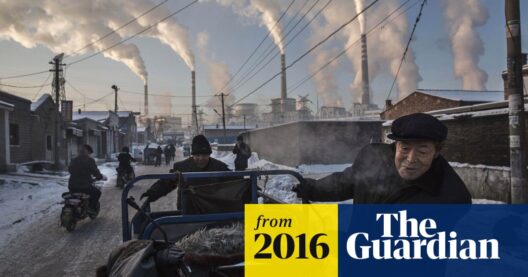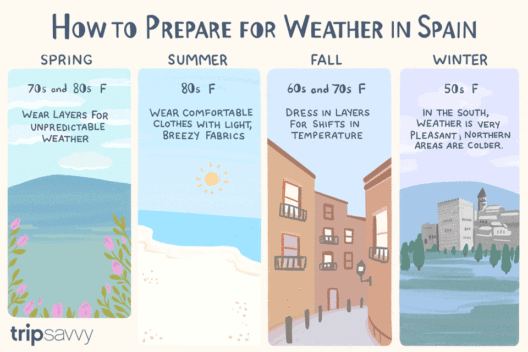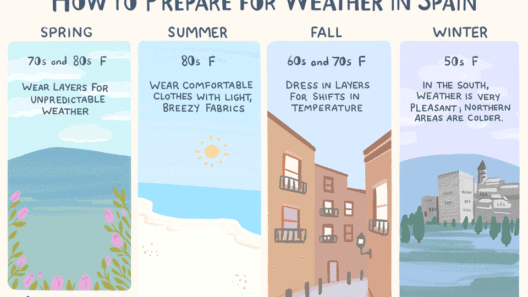Climate change science has undergone a profound evolution, transitioning from a theoretical stance to a situation that many now deem a pressing crisis. This journey encompasses not only scientific advancements but also societal implications, economic factors, and an increasing recognition of the urgent need for action. Understanding this evolution involves exploring a multitude of perspectives, each contributing to the broader narrative surrounding climate change.
Initially, climate change was posited as a hypothesis in the 19th century, spurred by the discovery of greenhouse gases and their potential to alter atmospheric temperatures. Early thinkers, such as John Tyndall, elucidated how steam and carbon dioxide could trap heat. However, the scientific community did not immediately recognize the implications of these discoveries. The prevailing sentiment often hinged on the belief that nature possessed a remarkable resilience capable of absorbing human-induced changes.
As the 20th century unfolded, technological advances allowed for improved data collection and analysis, leading to an emerging consensus among climate scientists. The iconic Keeling Curve, established in the late 1950s, documented the persistent increase of carbon dioxide levels in the atmosphere, signaling a crucial shift in our understanding of climate patterns. Concurrently, computer modeling began to predict future scenarios based on greenhouse gas emissions, elevating the discourse from abstract theory into concrete projections of looming peril.
This transition from theoretical framework to crisis mode was punctuated by key studies and reports. The Intergovernmental Panel on Climate Change (IPCC), established in 1988, has been instrumental in synthesizing global research, providing a platform for collaboration, and delivering pivotal assessments. Their comprehensive reports convey not only the scientific consensus but also the ramifications of climate change, emphasizing the urgency of addressing the palpable impacts on ecosystems, weather patterns, and human health.
Simultaneously, there has been an expansion in the public’s awareness of climate change issues. The latter part of the 20th century saw environmental activism gain momentum, with movements drawing attention to deforestation, pollution, and biodiversity loss as interconnected challenges. Books, documentaries, and public figures began to advocate for immediate action, injecting a sense of urgency into the societal consciousness. Consequently, climate change was no longer a distant concern but rather an imminent crisis affecting marginalized communities disproportionately, adding a layer of social justice to the environmental narrative.
The interplay between climate science and public policy has also been a defining aspect of this evolution. Legislative measures such as the Kyoto Protocol in 1997 and the Paris Agreement in 2015 exemplify global attempts to address climate change through cooperative frameworks. However, the effectiveness of these policies often encounters obstacles from political inertia, economic interests, and shifts in public opinion. The emergence of climate denialism emerged as a significant counterforce, drawing attention to the ongoing struggle between scientific evidence and political discourse.
In recent years, the affective dimension of climate change—its emotional resonance and moral imperatives—has come to the forefront. The youth-led climate movement, marked by figures like Greta Thunberg, showcases an invigorated call to action that transcends scientific findings alone. The rhetoric employed emphasizes intergenerational equity, urging leaders to consider the legacy they will leave for future generations. Emotions such as fear, hope, and despair are woven into a narrative that pushes for robust engagement with climate issues, encouraging individuals to advocate for sustainable futures.
The rapid advancement in renewable energy technologies reflects another crucial aspect of the conversation. As fossil fuels remain the dominant source of energy, innovation in wind, solar, and geothermal technologies is imperative. These alternatives not only offer a solution to mitigate greenhouse gas emissions but also bolster economic opportunities through green job creation. A transformation in energy paradigms promises not only environmental benefits but also resilience in the face of economic disruption triggered by climate-related crises.
Yet, acknowledging the multifaceted nature of climate change necessitates a broader lens, one that integrates intersectionality and diversity into the discourse. Indigenous communities, often custodians of traditional ecological knowledge, have increasingly played pivotal roles in conservation efforts. Their contributions underscore the importance of adaptive practices informed by centuries of experience, challenging modernist approaches that may disregard indigenous perspectives.
Moreover, scientific inquiry continues to evolve, with climate researchers increasingly utilizing interdisciplinary methodologies. Studies now encompass sociology, economics, psychology, and even politics, showcasing the intricate web of interactions that influence climate dynamics. This integrative approach fosters a more comprehensive understanding of human behavior in relation to climate change and can inform strategies to elicit collective action.
The evolution of climate change science from theory to crisis demonstrates the accelerating pace of change and the escalating need for responsive actions. With each passing year, empirical data corroborates the realities of climate impacts—eerily visible in frequent extreme weather events, rising sea levels, and diminishing biodiversity. As discourse expands to encompass a range of voices, innovative solutions must emerge to mitigate this crisis while ensuring a more equitable and sustainable future.
Ultimately, as society grapples with the implications of climate change, it is paramount to foster a culture of informed consciousness. Engaging with the science, advocating for policy reforms, and embracing sustainable practices are imperative steps. The transition from theory to crisis is not merely a narrative but a clarion call, urging stakeholders at all levels to rally together in addressing one of the most daunting challenges of our time.








